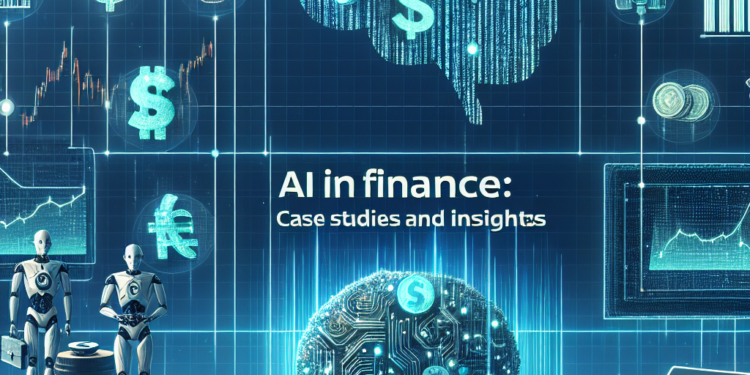Artificial Intelligence (AI) has revolutionized the financial industry, enabling organizations to enhance efficiency, accuracy, and decision-making processes. Through the use of AI technologies such as machine learning, natural language processing, and predictive analytics, financial institutions are able to gain valuable insights from vast amounts of data and streamline their operations.
AI in finance has already proven to be a game-changer, with numerous case studies showcasing the impact and benefits of implementing AI technologies. In this article, we will explore some of the most notable case studies and insights on AI in finance, highlighting the transformative power of these technologies in the financial services sector.
One of the leading applications of AI in finance is in fraud detection and prevention. Fraud detection has always been a major concern for financial institutions, as fraudsters are constantly evolving their tactics to stay one step ahead. Machine learning algorithms have been instrumental in detecting fraudulent activities by analyzing large volumes of data in real-time to identify suspicious patterns and anomalies.
One prime example of this is PayPal, which uses AI-powered algorithms to monitor transactions and detect fraudulent activities. By analyzing various factors such as transaction amounts, locations, and user behavior, PayPal is able to flag potentially fraudulent transactions and alert users in real-time. This has significantly reduced the number of fraudulent transactions and saved the company millions of dollars in losses.
Another area where AI has made a significant impact is in credit risk assessment. Traditional credit risk assessment methods typically rely on historical data and credit scores to evaluate the creditworthiness of borrowers. However, these methods are often limited in their accuracy and may not capture the full picture of a borrower’s credit risk.
AI technologies have enabled financial institutions to improve credit risk assessment by leveraging advanced analytics and machine learning algorithms. By analyzing a wide range of data points such as credit history, income, assets, and spending habits, AI algorithms are able to provide more accurate and detailed assessments of borrowers’ creditworthiness.
One notable case study in this area is ZestFinance, a financial technology company that uses AI to analyze alternative data sources and provide credit scores to underserved borrowers. By leveraging machine learning algorithms, ZestFinance is able to assess the credit risk of individuals who may not have a traditional credit history, enabling them to access affordable credit options that were previously unavailable to them.
In the realm of investment management, AI has also emerged as a powerful tool for analyzing market trends and making informed investment decisions. Hedge funds and asset management firms are increasingly using AI technologies to analyze market data, identify investment opportunities, and optimize their investment portfolios.
One prominent example of this is Bridgewater Associates, one of the world’s largest hedge funds, which utilizes AI-powered algorithms to analyze market indicators and make data-driven investment decisions. By leveraging machine learning algorithms to analyze market data in real-time, Bridgewater Associates is able to identify promising investment opportunities and adjust its portfolio accordingly, enabling the fund to achieve strong returns for its investors.
In addition to investment management, AI is also being used in the field of customer service and engagement within the financial industry. Chatbots powered by AI technologies are increasingly being deployed by banks and financial institutions to provide personalized customer support and assistance.
One such example is Bank of America, which has implemented an AI-powered virtual assistant named Erica to help customers manage their finances and provide real-time assistance. Erica uses natural language processing and machine learning algorithms to understand customer inquiries and provide relevant information and support, enhancing the overall customer experience and reducing the need for human intervention.
Overall, the adoption of AI in finance has brought about significant advancements in the industry, enabling organizations to improve efficiency, enhance decision-making processes, and provide better services to customers. As AI technologies continue to evolve and mature, we can expect to see even greater innovations and transformations in the financial services sector.
In conclusion, AI has undoubtedly become a game-changer in the financial industry, offering advanced capabilities and insights that were previously unimaginable. Through the implementation of AI technologies such as machine learning, natural language processing, and predictive analytics, financial institutions are able to derive valuable insights from vast amounts of data and enhance their operations in numerous ways.
From fraud detection and credit risk assessment to investment management and customer service, AI has already proven to be a transformative force in finance, enabling organizations to make more informed decisions, provide better services, and achieve greater efficiency. As AI technologies continue to evolve and become more sophisticated, we can expect to see even more groundbreaking innovations and opportunities in the financial services sector.













